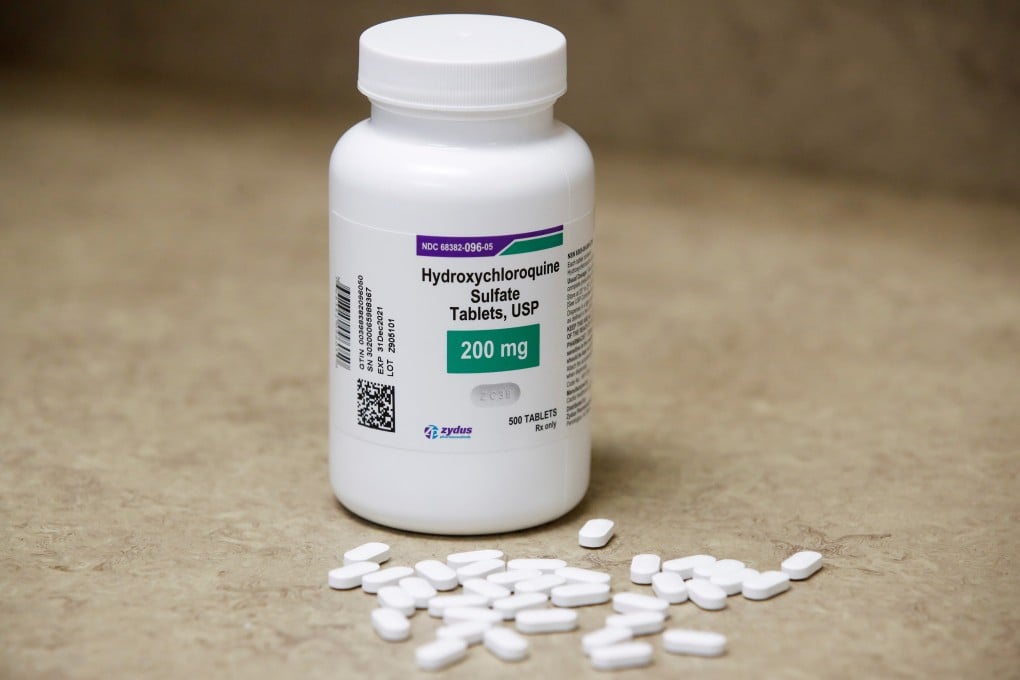Advertisement
Coronavirus: ‘conflicting treatment message’ as China rejects Trump-touted drug hydroxychloroquine
- Medication not included in recommended pharmaceuticals but chloroquine makes the list
- National guidelines updated for the first time since early March
Reading Time:3 minutes
Why you can trust SCMP

China has advised against the use of hydroxychloroquine in treating coronavirus patients, a controversial malaria treatment touted by US President Donald Trump as a wonder drug for Covid-19.
However, it has recommended the use of a similar malaria drug called chloroquine.
The recommendations are part of new Covid-19 treatment guidelines released on Wednesday and updated for the first time since March 3.
Advertisement
“Some drugs may demonstrate a certain degree of efficacy for treatment in clinical observation studies but there are no effective antiviral drugs confirmed by double-blind, placebo-controlled clinical trials,” the National Health Commission said in version eight of the diagnosis and treatment guidelines.
“The use of hydroxychloroquine, or the combined use of it with azithromycin, is not recommended.”
Advertisement
But the same guidelines said chloroquine can continue to be used.
Advertisement
Select Voice
Select Speed
1.00x